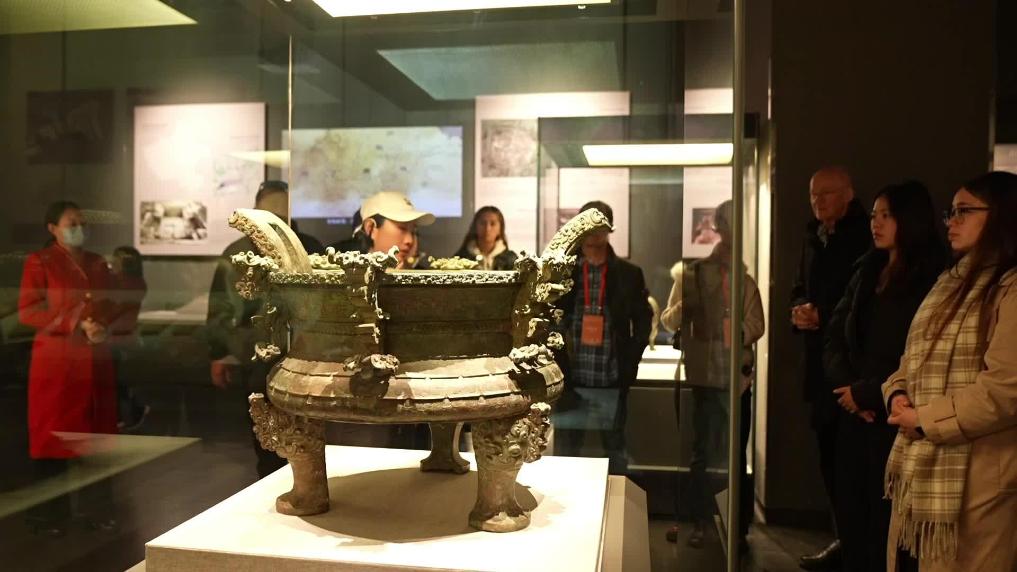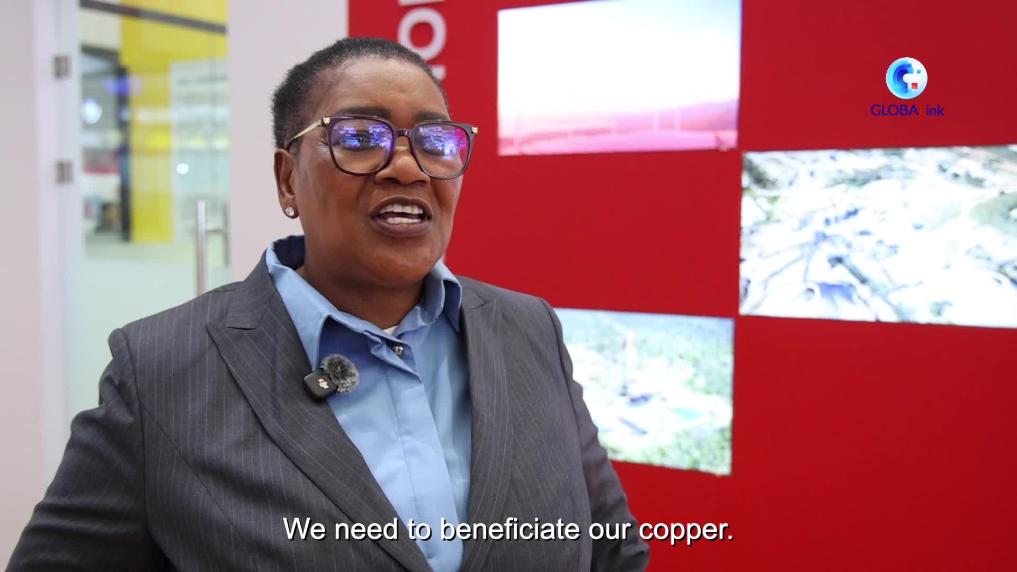NW China's "agri-science city" composes new SCO agricultural cooperation melody
Source: Xinhua
Editor: huaxia
2025-10-27 16:41:15
XI'AN, Oct. 27 (Xinhua) -- At the ongoing 32nd China Yangling Agricultural Hi-tech Fair in Yangling, known as China's "agri-science city," the booth of Ashurov Pulot Masharipovich, director of Tajikistan's Apricot & Company, is succeeding in drawing crowds thanks to its popular dried apricots, mulberry fruit cakes and herbal teas.
"This is my third time attending the Yangling fair. Our products are pollution-free and purely natural, which appeal to the professional agricultural audience here," said Ashurov. "This year, with my Chinese partners, we opened a branch in Xi'an, capital of northwest China's Shaanxi Province, and we are committed to tapping into China's vast market."
The ancient Silk Road, which historically connected China to Ashurov's homeland, was a vibrant pathway for agricultural exchange -- silk itself featured as a Chinese agricultural product, while crops like sesame, pomegranates and grapes flowed eastward. In addition, Chinese technologies such as well-digging and sericulture spread westward via this route.
Yangling, located in Shaanxi Province in China's arid northwest, shares climatic and geographical similarities with Central Asia, including Tajikistan. Since China proposed establishment of the Shanghai Cooperation Organization (SCO) demonstration base for agricultural technology exchange and training in Yangling in 2019, cooperation under the SCO has accelerated, with Chinese solutions aiding poverty reduction and farming development.
In 2017, Zhang Zhengmao, a researcher at Northwest A&F University, joined a project in Kazakhstan to build a demonstration park for grain and oil crops. He found local wheat varieties there struggled with disease resistance and lodging -- areas in which Chinese expertise excelled.
"The complementary advantages made cooperation natural," Zhang noted. With new wheat varieties and planting techniques -- the park's yield increased by 20 to 30 percent compared to local varieties.
Bringing Kazakh spring wheat varieties back to China for trials, Zhang discovered their resilience, such as immunity to stripe rust, offering potential for breeding superior hybrids. "Hybridizing seed resources could yield more adaptable wheat," he said.
In Kyrgyzstan, apples are very popular. Zhang Dong, a professor at Northwest A&F University, recently inspected apple saplings slated for export next year. Using his asexual propagation techniques, these trees fruit in just two years, while reaching high yields by the fourth year, far quicker than traditional varieties.
"Previously, Kyrgyzstan imported apple saplings from Europe at over 100 yuan (about 14.1 U.S. dollars) each, but our top-grade saplings cost about 50 yuan, and standard ones just 30 yuan," Zhang Dong explained. "We aim to supply seedlings for 10,000 hectares of orchards -- spreading Chinese apples across Bishkek."
At Yangling Modern Agriculture International Cooperation Co., Ltd., a project in collaboration with Shandong Luhua Group aims to cultivate high-oleic peanuts across roughly 666,666.7 hectares in Central Asia. "Using Xinjiang as a springboard, we've solved issues like aflatoxin and mechanized harvesting," said Min Liqian, the company's head. "We're confident in expanding this long-term project."
Kang Zhensheng, an academician of the Chinese Academy of Engineering, said the "seeds" of cooperation have deepened people-to-people ties under the Belt and Road Initiative.
Since 2024, the SCO base in Yangling has conducted 16 training sessions on modern agriculture and poverty reduction -- attracting over 400 officials and technicians from SCO and Belt and Road countries, with more than 9,000 participants attending online lectures.
Notably, SCO member states, as outlined in the Tianjin Declaration, continue to strengthen agricultural cooperation, leveraging the Yangling base for food security and knowledge sharing.
SCO countries are committed to boosting agricultural trade, expanding exchanges and nurturing talent -- making this organization vital for food security and people's well-being, said Oleg Kopelev, deputy secretary-general of the SCO.
"We will fully unleash Yangling's potential as an SCO base to facilitate smooth exchanges of agricultural products and technologies," Kopelev added. ■













Comments